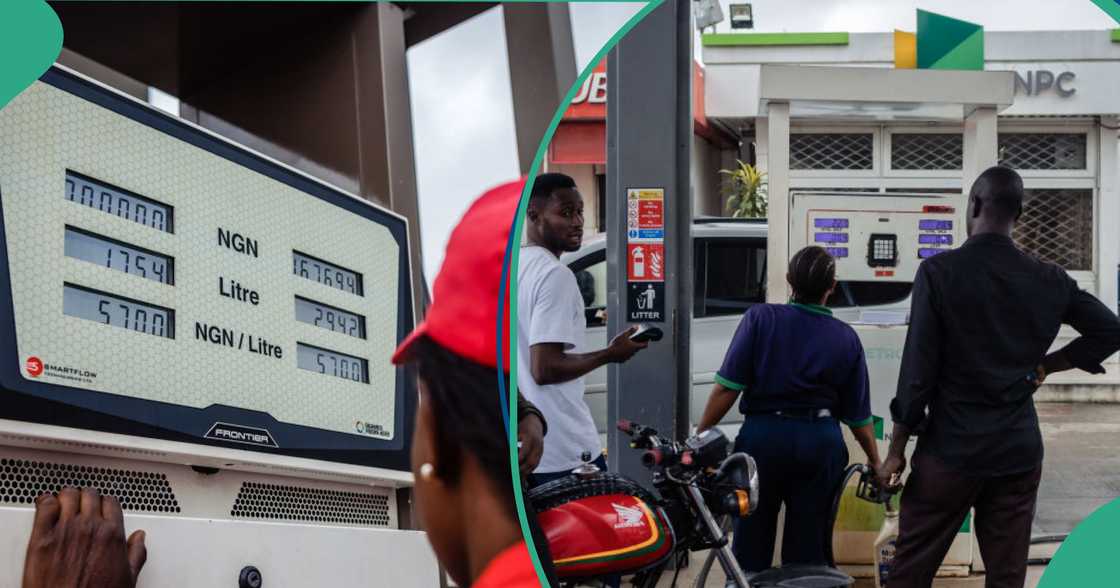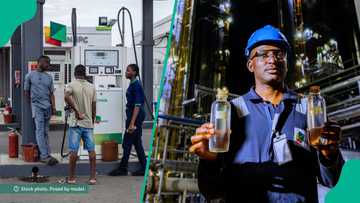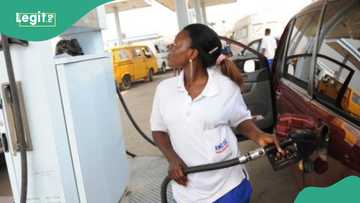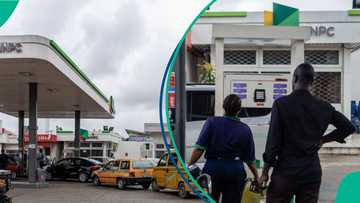Filling Stations Announce New Fuel Prices Nationwide, Marketers Identify Causes for New Price
- Filling stations nationwide have reduced their fuel pump prices despite a rise in the global crude oil benchmark
- Checks by Legit.ng revealed that petrol prices at several filling stations visited are now above N1,000
- Many other filling stations remain closed as managers await instructions from their head offices on the following price adjustment
CHECK OUT: Education is Your Right! Don’t Let Social Norms Hold You Back. Learn Online with LEGIT. Enroll Now!
Legit.ng journalist Dave Ibemere has over a decade of business journalism experience with in-depth knowledge of the Nigerian economy, stocks, and general market trends.
Oil marketers have changed the price of Premium Motor Spirit, popularly known as petrol.
Checks by Legit.ng show that filling stations have increased their pump prices to between N1,050 and N1,150 per litre.

Source: Getty Images
The new prices represent an increase of over N100 compared to the previous average of N920, N950 per litre.
Aside from the price change, many filling stations in Lagos were also closed, with workers standing around.

Read also
Cost of imported petrol crashes below Dangote's price, filling station owners set to make a decision
A manager of one of the filling stations visited, who identified himself as Aliyu, confirmed stock availability to Legit.ng.
He said:
"Before the recent price increase, we were selling at N940 until instructions came from the headquarters to stop selling.
"There is fuel but for now, we are awaiting instructions on the correct price before we resume sales."
Why fuel prices increase
According to the Petroleum Products Retail Outlets Owners Association of Nigeria (PETROAN), the recent increase in petrol prices led to the rise in crude oil prices in the international market.
PETROAN stated this in a statement made available to journalists, the nation reports.
In the statement, PETROAN clarified that the benchmark for oil prices, Brent crude, was priced at $80.85 per barrel, while WTI crude and the OPEC basket were valued at $78.82 and $81.72 per barrel, respectively.
These prices reached a four-month high following the United States' implementation of new sanctions on Russian oil.
The statement said Section 205 of the Petroleum Industry Act (PIA) states that petrol prices are determined by market forces, indicating that the government and NNPC no longer set petrol prices.
As a result, refinery operators in Nigeria will adjust in response to changes in crude oil prices.
The National President of PETROAN, Billy Gillis-Harry, emphasised that crude oil prices will inevitably impact domestic costs.
He said:
“It’s no longer funny; even retail outlets owners are affected by this up-and-down dwindling of prices. It affects our business.”
To reduce the impact of PMS pricing in Nigeria, PETROAN advocates for privatising government-owned refineries and promoting competition in the downstream sector.
TUC president identifies cause of hikes in fuel price in Nigeria
Legit.ng reported that Festus Osifo, the Petroleum and Natural Gas Senior Staff Association of Nigeria (PENGASSAN), blamed the rise in petrol prices on naira depreciation.
Osifo explained that the fluctuation of the naira-dollar exchange rate directly increases the fuel price index.
The TUC boss said his organisation presented their 'worry' to state governors regarding how the exchange rate reportedly shoots up fuel prices.
PAY ATTENTION: Сheck out news that is picked exactly for YOU ➡️ find the “Recommended for you” block on the home page and enjoy!
Source: Legit.ng




